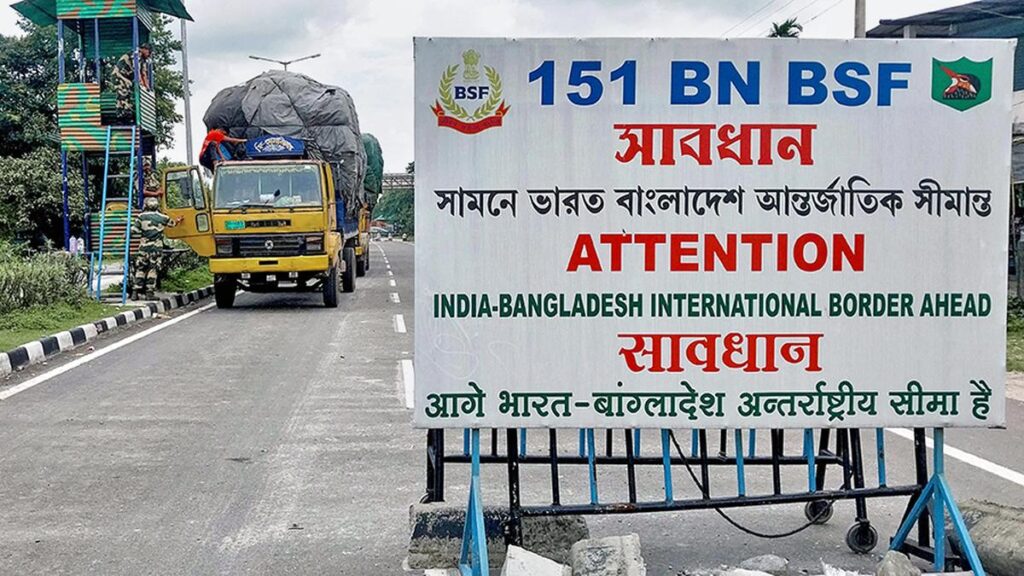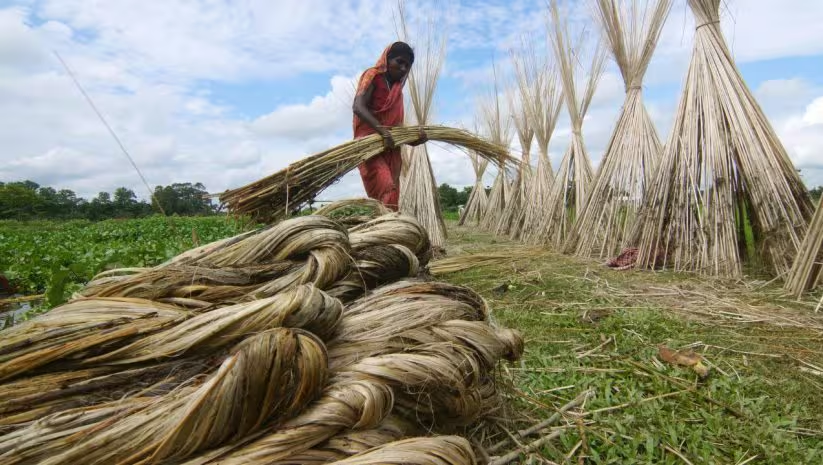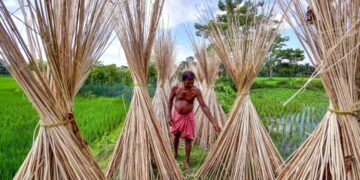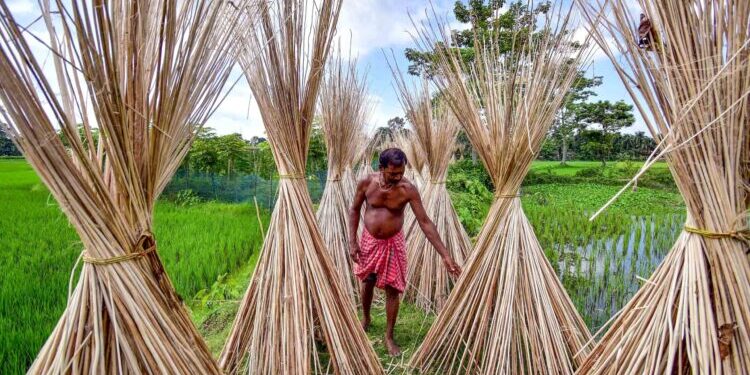India tightens restrictions on jute imports from Bangladesh, limiting entry through select land and sea ports. The move impacts trade flow and raises concerns in Bangladesh’s jute industry.

India Bans Jute Imports from Bangladesh via Land Ports, Restricts Access to Single Seaport
Weeks after placing restrictions on apparel exports from Bangladesh through land ports, India has now extended similar restrictions to jute imports. On Friday, June 27, 2025,
the Directorate General of Foreign Trade (DGFT) issued a notification stating that jute from Bangladesh will no longer be allowed entry into India through any land or seaport — with the sole exception of the Nhava Sheva seaport in Mumbai.
This new measure applies uniformly across all entry points, effectively limiting Bangladesh’s access to the Indian market for jute to just one seaport.
India Enforces Immediate Ban on Jute Imports from Bangladesh
Official sources have confirmed that port restrictions on the import of jute and allied fibre/products from Bangladesh have been implemented with immediate effect. While jute from Bangladesh has enjoyed duty-free access to the Indian market, Indian industry has long complained about the negative impact of dumped and subsidised imports—particularly jute yarn, fibre, and bags.
Despite the imposition of anti-dumping duties (ADD) in the past, the inflow of jute products from Bangladesh remained largely unaffected due to continued government subsidies by Bangladesh, officials said, justifying the latest move to restrict entry.
India has repeatedly expressed concerns to authorities in Dhaka regarding jute trade practices, but Bangladesh has only made token adjustments. The country continues to heavily incentivize the export of “value-added jute products,” affecting India’s domestic industry.
Jute is a key crop in Indian states like West Bengal, Bihar, Assam, Odisha, Andhra Pradesh, Tripura, and Meghalaya, supporting nearly 4 lakh workers employed in organized mills and diversified production units. However, artificially low prices driven by subsidized imports from Bangladesh are having a direct and negative impact on the earnings of Indian jute farmers.
ndia Bans Jute Imports from Bangladesh via Land Ports
Photo Credit: AFP | File Image
Weeks after restricting apparel imports from Bangladesh through land ports, India has now extended similar restrictions to jute and jute-related products. In a notification issued on June 27, 2025, the Directorate General of Foreign Trade (DGFT) announced that jute imports from Bangladesh will no longer be allowed via any land or seaports, except for the Nhava Sheva port in Mumbai.

🔒 Restrictions Come Into Effect Immediately
According to official sources, the restriction covers jute and allied fibers/products, including:
- Flax tow and waste (including yarn waste and garneted stock)
- Jute and other textile bast fibers
- Single yarn of jute or other textile bast fibers
- Woven fabrics of flax or jute (including unbleached)
🇮🇳 Why the Ban?
Officials cited the long-standing challenges faced by the Indian jute industry, particularly due to dumped and subsidized imports from Bangladesh. Despite India’s anti-dumping duties (ADD), the volume of jute imports remained high due to continued Bangladeshi export subsidies.
“The Indian jute sector, which supports nearly 4 lakh workers in West Bengal, Bihar, Assam, Odisha, Andhra Pradesh, Tripura, and Meghalaya, has suffered due to artificially low prices,” said an official.
Table of Contents
India has raised concerns repeatedly with authorities in Dhaka, but only “nominal adjustments” were made by Bangladesh, particularly in the case of value-added jute products
While the order blocks jute imports into India from Bangladesh, it does not affect Bangladesh’s exports to Nepal and Bhutan. However, any re-export of those jute goods from Nepal or Bhutan into India will be strictly prohibited.
On May 17, India imposed restrictions on the entry of apparel from Bangladesh via its land ports. The same directive also barred certain specified products from entering Northeast India through land ports along the Bangladesh–Northeast India border.
India cannot allow Bangladesh to continue with unfair trade practices that damage the livelihoods of our farmers and jute mill workers — especially in regions where this sector is a vital part of the rural economy,” said an official while explaining the recent restrictions on jute imports through land ports.
“India extended market access to Bangladesh in good faith, but this generosity cannot come at the cost of our own economic interests. The influx of cheap, heavily subsidised jute from Bangladesh has led to falling prices, reduced incomes for Indian farmers, and left our mills operating below capacity — ultimately resulting in job losses and economic distress.
READ ALSO……RIP Shefali Jariwala: The Kaanta Laga Star Who Lit Up the 2000s















 Categories
Categories









